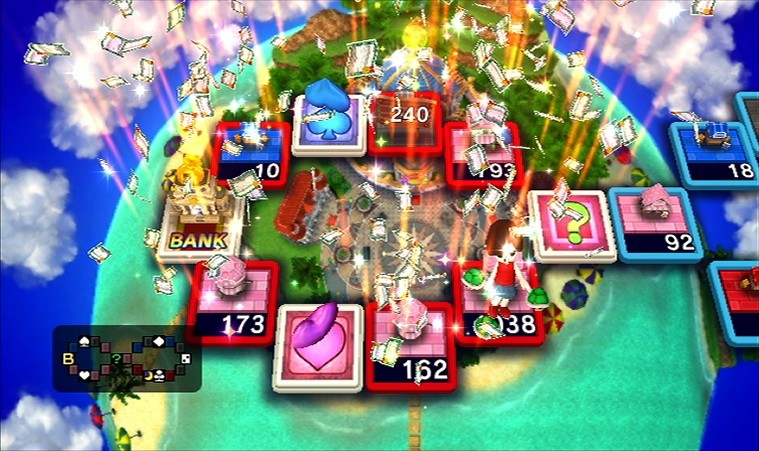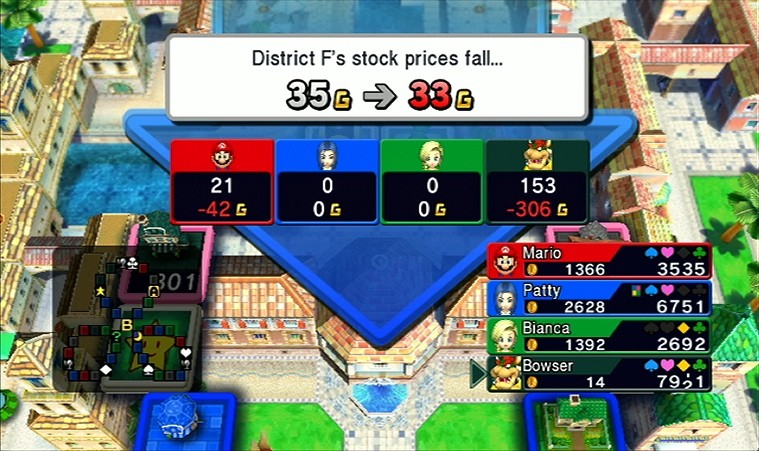Overview
 One of the many different Game Boards to play on.
One of the many different Game Boards to play on.Fortune Street (known in Japan as Itadaki Street WII: Dragon Quest & Super Mario and in Europe as Boom Street) is a video board game developed by Marvelous and published by Nintendo (Square Enix in Japan) for the Wii in late 2011 (December 1 in Japan, December 5 in North America, and December 28 in Europe).
The ninth entry in Square Enix's long-running Itadaki Street series (and the first to see an official release outside of Japan), Fortune Street features characters and themes from both the Dragon Quest and Mario franchises, as well as the inclusion of customizable Miis and online multiplayer support (via Nintendo Wi-Fi Connection).
Gameplay

Described as Monopoly with a stock market, Fortune Street lets up to four players go around one of fifteen boards to collect four symbols, buying properties along the way. Once the heart, diamond, spade, and club symbols are collected, a player can go to the bank to get a promotion (level up). The objective of the game is to acquire a certain amount of money and return to the bank before the other players or to hold the lead when a minimum number of players go bankrupt.
At the bank they can buy stocks on groups of properties referred to as districts, inflating the value of the individual properties. Players can also add to the value of their properties by leveling up, buying all the properties of the same group or investing directly on one of them. Landing on a rival's property forces a player to pay a fee, determined by its value, to the owner and all shareholders of the group's property. Selling ten or more stocks in a single turn will lower the value of the district. The stock market mechanic is eliminated if the player chooses to play under the "Easy Rules" rule set.
Some spaces on the boards trigger mini games, one of which involves betting on slime races.
Some boards have a Wild card space known as a vacant plot. any player landing on it, can build a space as a ploy to basically collect more money.
Log in to comment